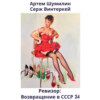Читать книгу: «Silverthorns», страница 5
“Yes,” she decided, “there has been no exaggeration. They are very poor, but they are not degraded by it. They have kept up their self-respect.”
But she was scarcely prepared for the vision that met her eyes when, an instant later, the door opening made her turn round.
It was Claudia – Claudia in a little washed-out cotton frock, which might once have been blue, with snowy collar and cuffs, and a rosebud at her throat, her lovely hair fluttering over her forehead, her hazel eyes raised in half-perplexed inquiry, – Claudia, the most exquisite picture of girlhood that Lady Mildred’s gaze had ever rested on.
She half started forward to meet the child; but Claudia was absorbed in her commission, and did not notice it.
“Mamma is very sorry,” she began, “she – she has been busy writing for papa. She will be here in a moment. Can you kindly tell me your name – and is there anything I can say to mamma for you?”
“My dear, yes. Tell her not to hurry; I can wait. Tell her and your father that I am Aunt Mildred, and that I have come to spend the day with them if they will have me. And before you run away, can you not kiss your old aunt?”
“Of course, of course. I had no idea it was you, dear aunt,” said Claudia. “How strange of me not to guess, and we so often speak of you!”
“You knew that your mother, or perhaps I should say your father, wrote to me lately?” asked Lady Mildred.
“Yes,” said Claudia simply, “I knew all about it. And oh! I am so glad you have come. It is ever so much better than a letter.”
“She is lovely and good, I feel sure, and I should imagine clever, like her mother,” thought Lady Mildred. “What a pity it seems! But they are right – their idea is infinitely better than making a governess of such a girl, even if she were not a Meredon.”
And the result of that August day that Lady Mildred Osbert spent with her nephew and his family was, that a fortnight later Claudia Meredon was installed at Silverthorns.
Lady Mildred, when free from prejudice, could do things both kindly and sensibly, though nevertheless “in her own way.”
“I cannot do much for you,” she said to her nephew and his wife; “but I am heartily sorry for you, – I had no idea Basil’s eyes were so bad, – and what I can do I will. I am not so rich as is generally thought.”
“That I know,” Mr Meredon interrupted.
“Yes, I have always wished my own family to know it. As for the Osberts, time enough for them to know it when I am dead. It is no love for them that actuates me, but my determination to carry out my husband’s wishes. Thanks to this, the property will be all but unencumbered again when it leaves my hands. But this state of things cripples me. However, that is no one’s concern but my own. Of all things I hate gossip, so I keep my own counsel. Now as to Claudia – I should like, I tell you frankly, to get some personal gratification out of what I do. I have taken a great fancy to the child. Suppose you let me have her for the two years, instead of sending her away to school – I hate girls’ schools, by the way, even the best of them. But I have made inquiry, and I find that at Wortherham, near me, she could have excellent teaching. There is a sort of school there, a day school only, for some of the girls of the place, which is most highly spoken of – the principal of it, Miss Lloyd, is very capable herself, and has first-rate teachers to help her. If Claudia attended these classes she could live with me and cheer me up a little. I am very lonely. The two years may see the end of me – ”
“Don’t say that, Aunt Mildred,” Mr Meredon interrupted; “it makes me feel as if I should have done something – written to you, or had some communication with you before. Has it been false pride?”
“Perhaps,” said Lady Mildred, bluntly. “I was not cordial about your marriage. You know it, my dear,” she added, turning to Mrs Meredon. “But it was no ill-feeling to you personally. And as things are – well, I see plainly that Basil could not have a better wife.”
“Thank you for saying so,” said Mrs Meredon simply.
“And let me say I think your plan for Claudia a delightful one.”
“But I have more to explain,” Lady Mildred went on. “I like doing things in my own way. If she comes to me it must not be in the guise of a poor relation. I won’t have all the old women in Wortherham, – dreadful radical place, that it is, – nor my county neighbours either, for that matter, gossiping about the poverty-stricken Meredons. Every one knows the Meredons are poor, but let us keep all details to ourselves. Claudia must not let any one at this school know anything about her motives for studying as hard as I am sure she will do; and she must not overdo it. She is well advanced already, you say?”
“I hope so,” said the mother. “But it is difficult to judge till one compares her with others. In French and German I am sure she will stand well.”
“Yes, I know she could not have had a better teacher than you.”
“I had unusual advantages myself certainly,” said Mrs Meredon, who had been many years in France and Germany.
Lady Mildred nodded her head without speaking. She had the greatest belief in her niece’s ability, and with good reason.
“Well, then,” she said, “we may consider it settled. I shall meet Claudia in London a week hence and see to a ‘trousseau’ for her, so give yourself no trouble on that head. You can explain to her all I have said. She will understand why I do not wish her to make friendships with any of the Wortherham girls whom she will be thrown with?”
“She will thoroughly understand that she is to follow your wishes in everything,” said Mrs Meredon. “But I must warn you that she is a very sociable child – the world seems to her a very much more delightful place than to most of us, for somehow she always manages to see the best side of people.”
“I hope she will see the best side of me then,” said Lady Mildred, rather grimly; “for I am a cantankerous old woman, and too old now to change. Claudia had better rub up her rose-coloured spectacles before she comes my way.”
And so, a fortnight later saw Lady Mildred’s grand-niece installed as the child of the house at Silverthorns, or, according to the local wiseacres who there, as everywhere, knew more of their neighbours’ affairs than the neighbours themselves, as “her ladyship’s adopted daughter, heiress to Silverthorns, and all the great accumulation of Osbert wealth.”
And certainly the girl’s sunny face and bright bearing gave some colour to Charlotte Waldron’s belief that Claudia Meredon was one of those favoured human beings “who have everything!”
Chapter Seven
Misunderstood
Claudia’s success in the German class was, as Charlotte had expected, but the first of her triumphs. She had natural abilities of the first order; she had been excellently and most carefully taught, with the close individual attention and sympathy which no teacher can give in such perfection as a parent, rare though the parents may be who are fitted to teach their own children! And joined to these advantages she had the most intense desire to learn, not merely from her innate love of knowledge, but from the even nobler motive of wishing to help her parents. So that it was not to be wondered at that by the end of the first week Miss Lloyd, who had been requested by Lady Mildred to let her know her opinion of her new pupil, sent to Silverthorns a most satisfactory report. For Miss Lloyd was honest to the backbone.
“Miss Meredon will make good progress, I have not the least doubt,” she wrote; “but it is only fair to say that the credit will be mostly due to her own application and to the teachers who have already so thoroughly taught her how to learn.”
Lady Mildred showed Claudia the letter.
“It will not make you vain,” she said, “for it is your mother it praises, not you. Miss Lloyd must be a straightforward sort of person; most schoolmistresses try to make out that their pupils know nothing when they go to them, and learn everything with them. Does she ever cross-question you as to who those teachers of yours were?”
“No,” said Claudia. “She asked me – or perhaps it was the French governess – if I had ever been abroad, and I said no, and then I think I said I had always been taught at home.”
“And the other pupils – do they seem inquisitive either?”
Claudia hesitated.
“I don’t think they are more so than any girls would be,” she said. “I – I don’t tell them anything, and of course they are accustomed to being very friendly and communicative with each other. I think they are all nice girls. The one I like the best – she and I do nearly all the same lessons – is Charlotte Waldron. At least I think I could like her if I knew her; but – ”
“But what? You are not going to begin pestering me to let you make friends with her – her especially – I told you I don’t like her family,” said Lady Mildred irritably.
“Oh no, aunt, I was only going to say, I don’t know that she likes me,” said Claudia. “She is a very cold girl, except with some few whom she seems to know well.”
“Well, I hope you are cold to her in return,” replied her aunt, though as she glanced at the bright eager face beside her, it was difficult to associate it with the word.
“I try to do as you wish – as mamma explained,” said Claudia gently. “One thing I am sure of, Aunt Mildred, and that is that they all think me the very happiest girl in the world. And I almost think I am.”
She stooped to kiss Lady Mildred as she spoke, and then ran off.
She had not forgotten to bring her rose-coloured spectacles with her, that was certain. And it was well for her that it was so. There were difficulties in her present life that her mother had feared, but that Claudia herself in her innocence was as yet but very vaguely conscious of. She was scrupulously anxious to follow her aunt’s directions as to her behaviour to her companions, but to one so open-hearted and genial it was not easy to be only coldly courteous and always self-restrained. And the struggle gave her a curious sort of timidity and uncertainty of manner which was not perhaps without its charm, but made it difficult to understand her, even for those who cared to exercise any observation and discrimination.
“How do you like her, Charlotte? I do wish you would tell me?” asked Gueda Knox one day, about a month after Miss Meredon’s advent.
“I don’t want to speak about her; I hate gossip,” said Charlotte impatiently.
“I’m not asking you to gossip,” Gueda replied. “I really want to know. I think you might tell me; it can do no harm, as I am going away almost immediately,” for the Knox family, all excepting the vicar himself, were obliged to spend fully half the year in the south of France for Mrs Knox’s health.
“That’s just the worst of it,” Charlotte replied impatiently. “If you hadn’t been going away I would not have minded so much, but without you I shall be thrown more and more with her.”
“That of itself is a pretty plain answer to my question,” said Gueda composedly. “Of course it means you dislike her.”
“I have neither said nor implied that,” said Charlotte. “I suppose it is wrong to dislike any one whom you really don’t know any harm of,” she added.
“But one does so. Everybody in the world dislikes others without real reason. Don’t you remember Dr Fell?” said Gueda.
“No, it isn’t that,” said Charlotte. “I don’t dislike her without reason. If you weren’t going away, Gueda, I don’t know that I would tell you anything. I do dislike her, and my reason is that she is interfering with me in every way. Why did she come here at all? She is charming, and rich, and clever – why couldn’t she leave us all at peace? I am perfectly sick of her name – it is nothing but Miss Meredon this, Miss Meredon that, wherever you go. If you had heard Dr Lewis in the street yesterday, just raving about her.”
“And papa is nearly as bad,” said Gueda. “He saw her the other day when he called to see Miss Lloyd about the confirmation classes. I know how you must feel, Charlotte. Of course it is much the worst for you, because you have been so incontestably the head of us all till now. I can’t help feeling it for you, only – ”
“Only what?”
“If it is a wrong feeling – if it is – don’t be angry, Charlotte – if it is jealousy,” said Gueda.
“I can’t help it. I’ve tried not to dislike her,” said Charlotte.
“Have you told your mother? – you say you tell her everything. That must be awfully nice. I dare scarcely tell mine anything now, she’s so ill,” said Gueda with a sigh.
“Poor Gueda,” said Charlotte with quiet sympathy. “Yes, I have talked about it to mamma; but she thinks it is best not to say much about it to any one. She says it impresses some kinds of wrong feelings more on our minds to talk about them. But how can I help it? – every moment it is something new. Did you bear this morning how mademoiselle went on about her French accent? And that duet that Mr Finlay will insist on our learning together! He said, Gueda, that I should take the bass because it was easier. Fancy that! he said it before her – Mr Finlay, who has always – ”
She stopped.
“Yes, I know,” said Gueda. “It is very hard for you, Charlotte.”
“No one seems really to understand except Jerry, and now you,” said Charlotte. “I am afraid mamma is rather shocked at me. I suppose grown-up people don’t understand these feelings,” she added, little suspecting that the excess of her mother’s sympathy was what made her shrink from much expression of it, and she sighed deeply. “Why do some people have everything!” she went on, reverting to her old refrain. “It really does not seem fair. You know, Gueda, that it is a great deal because we are not rich that I want to get on very well. I may – don’t think me very conceited – but I may be able to write books when I am grown-up, or to do something of the kind.”
“But you are getting on well – as well as you could possibly wish.”
Charlotte shook her head.
“The teachers don’t all think so now” she replied, “and I am losing heart. Oh, Gueda, if I don’t get the German prize!”
“You must,” said Gueda. “I wish you could like her, Charlotte.”
“No, I don’t want to like her. I only wish she would go away – or still more, that she had never come. I don’t want to like her and she doesn’t want it either.”
Gueda looked rather perplexed.
“There’s something in that,” she said. “I don’t think it’s as much your fault as might seem at first. I can’t make her out. She seems good and nice altogether; but she must be selfish. She does seem so perfectly delighted when she is praised, and even put before you; and she does not really try to make friends with us. She might make you like her.”
Something was running in Gueda’s head about the best way of winning withheld liking or affection being to put oneself in the way of receiving a service from the one to be gained over. “If Miss Meredon cared to do it with Charlotte, she might. Charlotte is so generous: if she were appealed to by the girl to help her a little, she would respond at once, I know,” thought Gueda.
“No,” agreed Charlotte with some satisfaction, “she does not try. I don’t want her to, and I don’t try myself. All the same, I am glad she doesn’t.”
“Some of the girls say she is affected,” said Gueda.
“It doesn’t prevent them all from toadying her in a disgusting way,” said Charlotte, contemptuously.
“Not all of them,” said Gueda. “Some of them are nicer than that, and are too proud to make friends with a girl who never seems able to speak to any of us naturally. Some think her manners are very ‘distinguished,’ and what one must expect from Lady Mildred’s niece.”
“Vulgar snobs!” ejaculated Charlotte.
“What can you expect?” said Gueda. “Perhaps she is really more shy than anything else, and yet I hardly think so. Now and then she seems as if she was ready to burst out laughing, and as eager to chatter and talk nonsense as any of us. And sometimes she has a very curious look in her face, as if she were almost asking pardon of us all. And oh, Charlotte, how pretty she is!”
“You needn’t repeat that. I hear it about fifty times an hour. And she certainly does not look as if she were asking pardon of me every time she is put before me,” said Charlotte. “Now do let us talk of something else, Gueda. Don’t spoil the last few days before you go.”
And Claudia, in blissful ignorance of all the discussion she evoked, was just then writing home one of her happy, almost triumphant letters, telling of new laurels gained and satisfactory opinions everywhere. She spoke warmly of Lady Mildred’s kindness, and kept silence on her strangely trying temper, as well as on the difficulties she was growing more conscious of in her school-life.
“It would be wrong, distinctly wrong,” she said to herself, “to complain of Aunt Mildred. So there, I have no choice. But about school – I wonder if mamma could say anything to help me? No, I am afraid not. I must just not mind if I am disliked.”
So she told of nothing but of good. Still Mrs Meredon, being a remarkably clever and acute woman, – a woman too of somewhat more determined and less emotional calibre than Charlotte’s gentle, sympathising mother, – read between the lines of her daughter’s letter and saw some rocks ahead.
“She is determined to make the best of everything, and that is only right,” she said to herself. “But she is too one-sided in her way of looking at things just now. I must warn her.”
And this letter brought in return some counsel to Claudia, which she had afterwards even fuller reason to appreciate.
There happened one morning to be an unusually difficult exercise to do for the French teacher. It related to some of the rules of grammar which it was evident the pupils had not thoroughly taken in. “Mademoiselle” explained them again more fully and clearly, but at the end of her dissertation she looked round the circle of faces, with their varying expressions of intelligence, indifference, or bewilderment, and sighed.
“I don’t believe you understand yet, young ladies,” she said. “One or two of you may do so perhaps – Miss Meredon?” – and a smile from Claudia confirmed her hopefulness in that quarter, – “Miss Waldron?” but Charlotte’s face was resolutely bent upon her exercise-book. “She does not understand, and she is too proud to own it,” thought the governess, who, like some others of the teachers, was rather in awe of Charlotte. “Ah, well! – Miss Knox, you Fanny, and Isabel, I am almost sure – ” she went on aloud.
“Oh, yes, indeed we understand quite well, even though we can’t quite say it,” said Isabel Lewis hastily. Anything to have done with the lesson and poor conscientious “mademoiselle,” who was so “tiresome” to-day. “You’ll see, mademoiselle, we shall do it all right when it comes up again in our exercises.”
“I am glad to hear it,” the French teacher replied in a peculiar tone. “You shall then give me the gratification you promise me without delay. For the next lesson you shall translate into French the following passage in English which I shall now dictate to you.”
And she proceeded to read aloud a passage of English especially composed to test the pupil’s comprehension of the knotty point.
Isabel made a grimace, but wrote it off readily enough. It was never her way to anticipate troubles. Who knew what might happen before the next lesson? She might discover some unanswerable reason for coaxing a holiday out of “papa”; she might have one of the convenient colds which were not much of a penance; the skies might fall! And she only laughed when her companions reproached her for having brought this extra piece of work upon them.
It was really a difficult exercise. It took all Claudia’s thorough knowledge of the rules to complete it correctly; and Charlotte, whose advantages of training in modern languages had been fewer, found herself in one or two details hopelessly baffled. But she kept this to herself; she did her best, and trusted there was not much wrong. Where was the use of speaking about it? There was no one who could help her. Mrs Waldron’s French was a long ago story; as to her companions, she was pretty sure that, with one exception, they were far more in the dark than herself. But it was new and painful to her to feel misgivings, and the very afternoon on which the exercises had to be given in she sat, her book open before her, trying to see what were her mistakes, and hoping to be able even then to correct them. She was so absorbed that she did not hear herself sigh, nor a light step approaching her in her corner.
“Miss Waldron,” said a voice she knew well, with an inflection of timidity which, till recently, happy, hearty Claudia’s tones had never known, “please forgive me for asking you if you are puzzled about that exercise. I found it very difficult, but ma – I was rather severely drilled in those rules, and I think I have got it right.”
“Indeed!” said Charlotte coldly.
“It is the last phrase that is so particularly worrying, is it not? – of course it is made to be so. Many French girls themselves would not know how to put it perfectly.”
Now it was this last phrase that to Charlotte had been a veritable ass’s bridge. And besides her ambition, she had the purer motive of a student’s real interest in thoroughly comprehending the working of the rule. As Claudia spoke she half unconsciously relaxed a little in her stiff, stand-off manner.
“Yes,” she said more frankly, “it is the last part that I cannot satisfy myself about.”
“Would you let me? – oh, please do,” said Claudia, her face flushing, her voice literally trembling with eagerness. “Might I just explain to you how I have said it to myself?” and without waiting for Charlotte’s half-hesitating reply, she ran on. In a few clear, terse sentences she put it before her listener, as all mademoiselle’s long explanations or the involved language of the grammar had failed to do. Charlotte forgot herself and her prejudices in real admiration and satisfaction.
“I see,” she exclaimed delightedly. “Miss Meredon, you have a real genius for teaching.”
“Do you really think so?” Claudia replied joyously. “And you are such a good judge. Oh, if you only – ” but she checked herself sharply. “You do work so well and so hard, Miss Waldron.”
“Yes,” said Charlotte, with a slight return of the cold moodiness which Claudia had rarely seen behind, “I don’t spare myself. I care for nothing on earth so much as for getting on well with my lessons.”
There was an intensity in her tone which almost startled Claudia. At the same time it touched a sympathetic chord.
“Oh, do you really feel so?” she exclaimed impulsively. “I think I can understand it. You have probably some very great motive as well as love of learning. Are you perhaps looking forward to making some use of your education, of all you are learning, before long – to help your parents, perhaps?” Charlotte grew crimson.
“Do you mean to say, am I being educated to be a governess?” she said haughtily. “No, Miss Meredon, I am not I think before you make such remarks you might be at the trouble to understand whom you are talking to, though you seem to think yourself of a perfectly different world from every one about you. But even in our world there are such things as well-educated ladies who are not governesses, though the idea may be a new one to you.”
Claudia’s face grew pale with distress. She clasped her hands together, while her eyes filled with tears.
“Oh, dear, what have I done? How clumsy and rude I have been – just when I did so want to be the opposite,” for her poor little overture to Charlotte had been made in deference to a suggestion of her mother’s, that without infringing Lady Mildred’s rules, she might surely find some small opportunities of showing kindliness and sympathy to her companions. “I can only say I did not – oh, indeed I did not mean to offend you.”
“You have found us all sufficiently well-bred to ask you no questions, as you evidently wished to be considered a person apart; and I can’t therefore see that you, on your side, can expect any confidences,” Charlotte said icily.
“No, no, of course not,” said Claudia nervously. “But, Miss Waldron, you are forgetting – are you not going to correct that last paragraph?” for Charlotte was bundling up her books and preparing to stalk off with what she considered great dignity.
“Certainly not. I am not going to do anything so dishonourable as to correct my exercises by yours,” said Charlotte.
“Oh, it would not be that – you know it would not be that,” said Claudia sadly. “I know what is honourable and what is not so, though you will not allow that I am nice in any way, now that I have offended you. I only explained the rule to you as mademoiselle had already done. You have not seen my exercise – you don’t know what I have put.”
But it was in vain. And the result, as might have been expected, was that Claudia’s exercise was the only correct one, and that Charlotte received for the first time a sharp reprimand from the French teacher for inattention and indifference. And for the first time the praises that were lavished upon herself gave Claudia no pleasure, but instead, real pain and distress.































